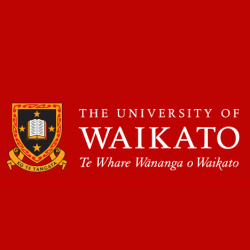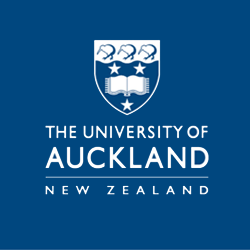
Taikākā | Optimising Māori academic achievement in a Māori-medium initial teacher education
Status
Completed: 7 November 2018
Project Details
A four-and-a-half-year project, to collaboratively develop, implement and evaluate a cohesive, evidence-based academic and cognitive skills programme for Māori students within a Māori-medium initial teacher education programme. A collaboration of University of Waikato and University of Auckland.
Aims:
The aims of the project are to:
- develop, implement and evaluate a cohesive, evidence-based academic and cognitive skills programme for Māori students, underpinned by a kaupapa Māori framework
- adapt elements of the AVID (Advancement via Individual Determination) academic advancement programme to the New Zealand context.
- increase the retention and success rates of Māori students.
Methodology:
A mixed-method project methodology is being used involving:
- a Kaupapa Māori approach that centres Māori knowledge, practices and beliefs
- descriptive statistics and qualitative methods
- data sources include surveys, interviews and institutional data
- ongoing analysis is supported by NVivo and SPSS
- to complement these methods, rigorous data collection and analysis is built into the AVID system to assist researchers and staff in their ability to monitor student progress and intervene early to keep students on track.
Team

Associate professor Jenny Lee
Project Leader
The University of Waikato
Associate Professor Lorri Santamaria
The University of AucklandStatus
Funding
$332,901.00 (excl GST)
Key Findings
Students’ voices and experiences
- The majority of Māori-medium ITE students come to university with high expectations of filling their baskets of knowledge, aspirations to be role models for their whānau, and the desire to make a meaningful contribution to the regeneration of te reo Māori.
- Students felt more confident and academically prepared in English than in Māori to undertake the programme.
- Students in Māori-medium ITE, particularly those who are the first in their family to enter tertiary education, face multiple challenges, including a lack of institutional knowledge and cultural capital.
- Te reo Māori proficiency and competency in an immersion learning environment was identified by students as a significant issue; in particular, students with low levels of proficiency faced greater challenges.
- Māori-medium ITE students, even those with strong levels of proficiency in te reo Māori, find the additional demands of learning specialist curriculum language in both English and Māori a significant burden.
- Compounding the language proficiency issue is a sense of whakamā, and the lack of space within the the ITE programme itself to remedy the problem.
- Students value highly the positive environments and strong relationships provided by teaching and academic student support staff, as well as peer support mentors, seeing these as vital for student retention in the programme.
- A range of teaching and learning strategies were identified by students as effective in assisting in academic advancement, many of these focussed on teacher pedagogy.
Staff voices and experiences
- Staff indicated that they highly valued a professional development opportunity that focussed on teaching and learning, given that this was the first professional development initiative they had engaged in beyond one-day seminars or workshops.
- Staff found significant benefits in a collaborative approach that strengthened whanaungatanga between academic and professional staff, allowing them to purposefully work together across ‘professional boundaries’ in learning, teaching and research.
- Staff recognised the cultural limits of the U.S. AVID teaching and learning system, and the need to adapt AVID strategies to the Aotearoa New Zealand environment, in particular, the Māori-medium ITE context.
- Staff identified, adapted and implemented strategies from three key areas of AVID’s WICOR suite:
• Inquiry, including Socratic Seminar, Philosophical Chairs and Purposeful Reading;
• Writing and Speaking to Learn, including writing for purpose; and
• Community building.
- Subsequent to trials with students in class, exemplars for five adapted AVID activities were developed, in lesson plan format and clearly grounded in Māori culture, language and worldview. They are: Tauutuutu (Inquiry); Āta Pānui (Inquiry); Nā Wai Tēnei i Tuhi (Inquiry); Tuhituhi Mai (Writing & Speaking to Learn) and He Kawenata Ako (Community Building).
- While staff found the AVID strategies to be very useful, they required regular training to sustain the momentum to continue to use these strategies in class.
Key Recommendations
A report prepared for Ako Aotearoa by Jenny Lee-Morgan.
(PDF, 6.2 MB, 88-pages).
- 7 November 2018
This resource presents some exemplars presented as ‘lesson plans’, intended for teachers to customize for their own courses and classes.
(PDF, 3.5 MB, 28-pages).
- 7 November 2018